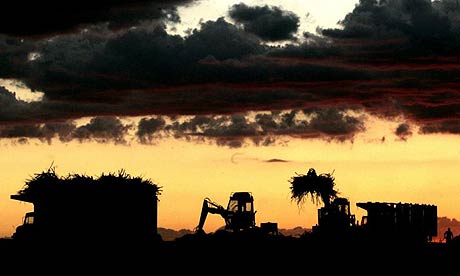 Excerpts from Friday's New York Times article...
Excerpts from Friday's New York Times article...“The problem is that this is a very young industry, and the majority of us that are involved are young, struggling, hungry companies,” said Lee Wallach of Solel, a solar power company based in California that has filed numerous applications to build on public land and was considering filing more in the next two years. “This is a setback.”
Craig Cox, the executive director of the Interwest Energy Alliance, a renewable energy trade group, said he worried that the freeze would “throw a monkey wrench” into the solar energy industry at precisely the wrong time.
Galvanized by the national demand for clean energy development, solar companies have filed more than 130 proposals with the Bureau of Land Management since 2005. They center on the companies’ desires to lease public land to build solar plants and then sell the energy to utilities.
According to the bureau, the applications, which cover more than one million acres, are for projects that have the potential to power more than 20 million homes.
Read the rest of the New York Times article









